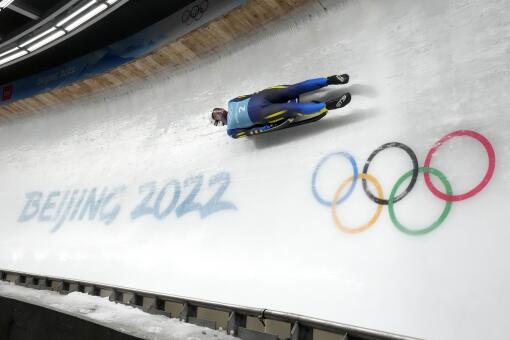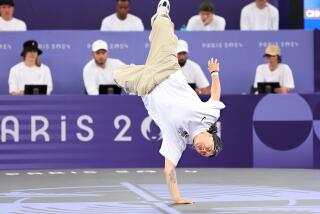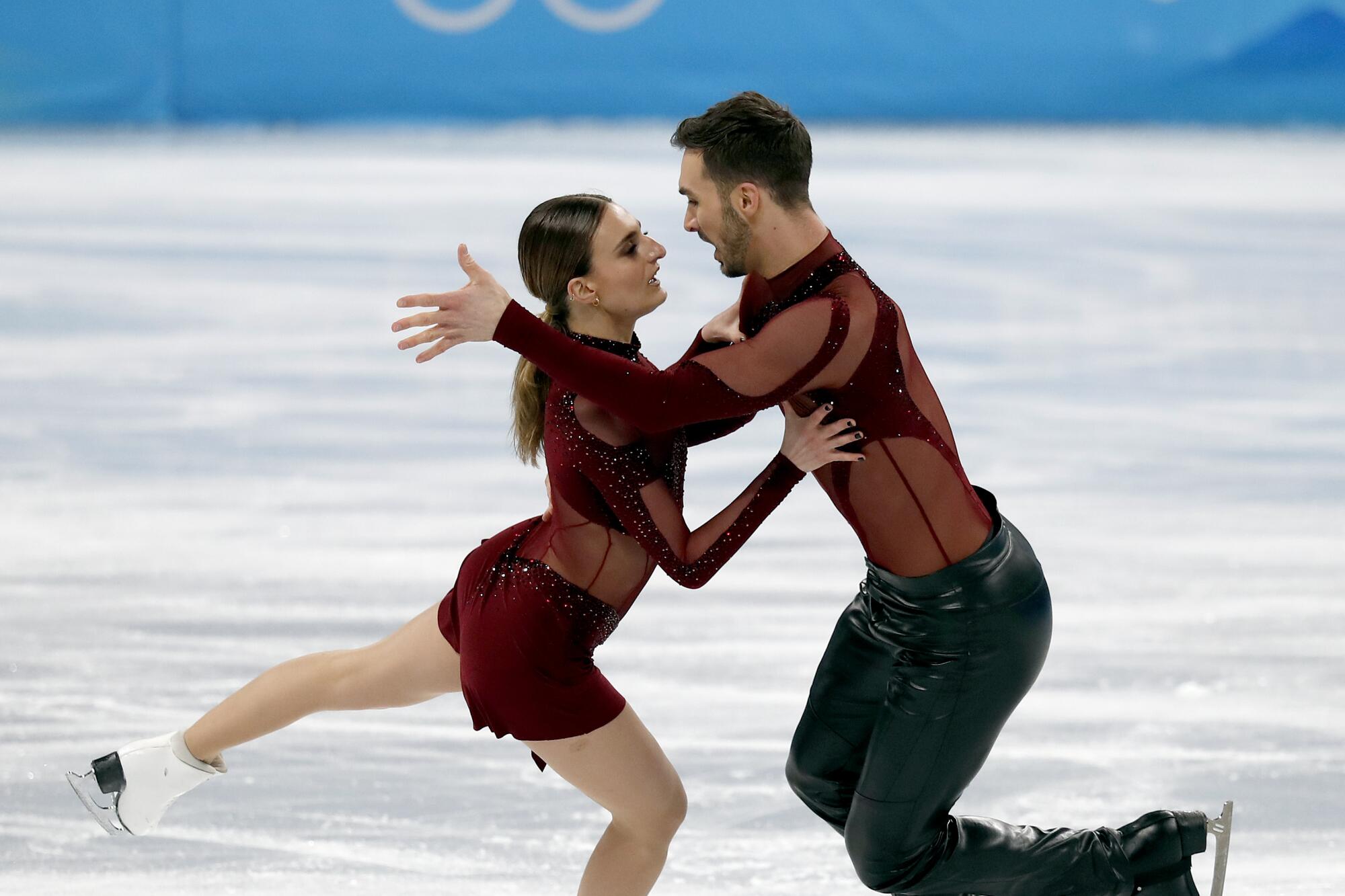
BEIJING — Ice dance has come a long way from the days of sleepy compulsory waltzes and endless repetitions of foxtrots.
The rhythm dance segment of the Beijing Olympics ice dance competition Saturday featured music by Billie Eilish, Rihanna, Janet and Michael Jackson, Tina Turner, Donna Summer and that old standby Elvis Presley, bringing vibrancy and interest to a figure skating discipline that sometimes has been criticized — with good reason — for being garishly over the top.
Ice dance has evolved with the times and has moved forward. French dancers Gabriella Papadakis and Guillaume Cizeron advanced it to another level Saturday with a captivating performance that put them in position to win the gold medal that eluded them four years ago at Pyeongchang after Papadakis’ unfortunate costume malfunction cost them precious points.
Using a form of street dancing called “waacking” as their inspiration and adapting it to their near-flawless technique, Papadakis and Cizeron broke their own world record with a score of 90.38 points. Reigning world champions Victoria Sinitsina and Nikita Katsalapov of the Russian Olympic Committee stood second with 88.85 points, followed by Americans Madison Hubbell and Zachary Donohue with a season-best 87.13 points.
U.S. champions Madison Chock of Redondo Beach and Evan Bates, competing in their third Olympics together, were fourth with 84.14 points. Their score was reduced by Chock’s slip on a midline step sequence. “It’s not over yet,” a disappointed Chock said.
The third U.S. duo, Kaitlin Hawayek and Jean-Luc Baker, stood a respectable 11th with 74.58 points in their Olympic debut. They train in Montreal with former ice dancers Marie France Dubreuil and Patrice Lauzon, as do Papadakis and Cizeron, Hubbell and Donohue, Chock and Bates, and about a half dozen other couples who competed Saturday.
“It was an absolute joy to perform out there. We felt so present every second of the performance,” Hawayek said. “I know for both of us going into the competition that’s all we really wanted.”
Papadakis and Cizeron, who won the silver medal in Pyeongchang, stole the show at Capital Indoor Stadium on Saturday with their performance to music by John Legend. They haven’t competed a lot internationally since the COVID-19 pandemic began, and they pulled out of the European championships this year to reduce their travel.
But they appeared comfortable with themselves, assertive and sharp and in championship form. The medals will be decided Monday, after the free dance.
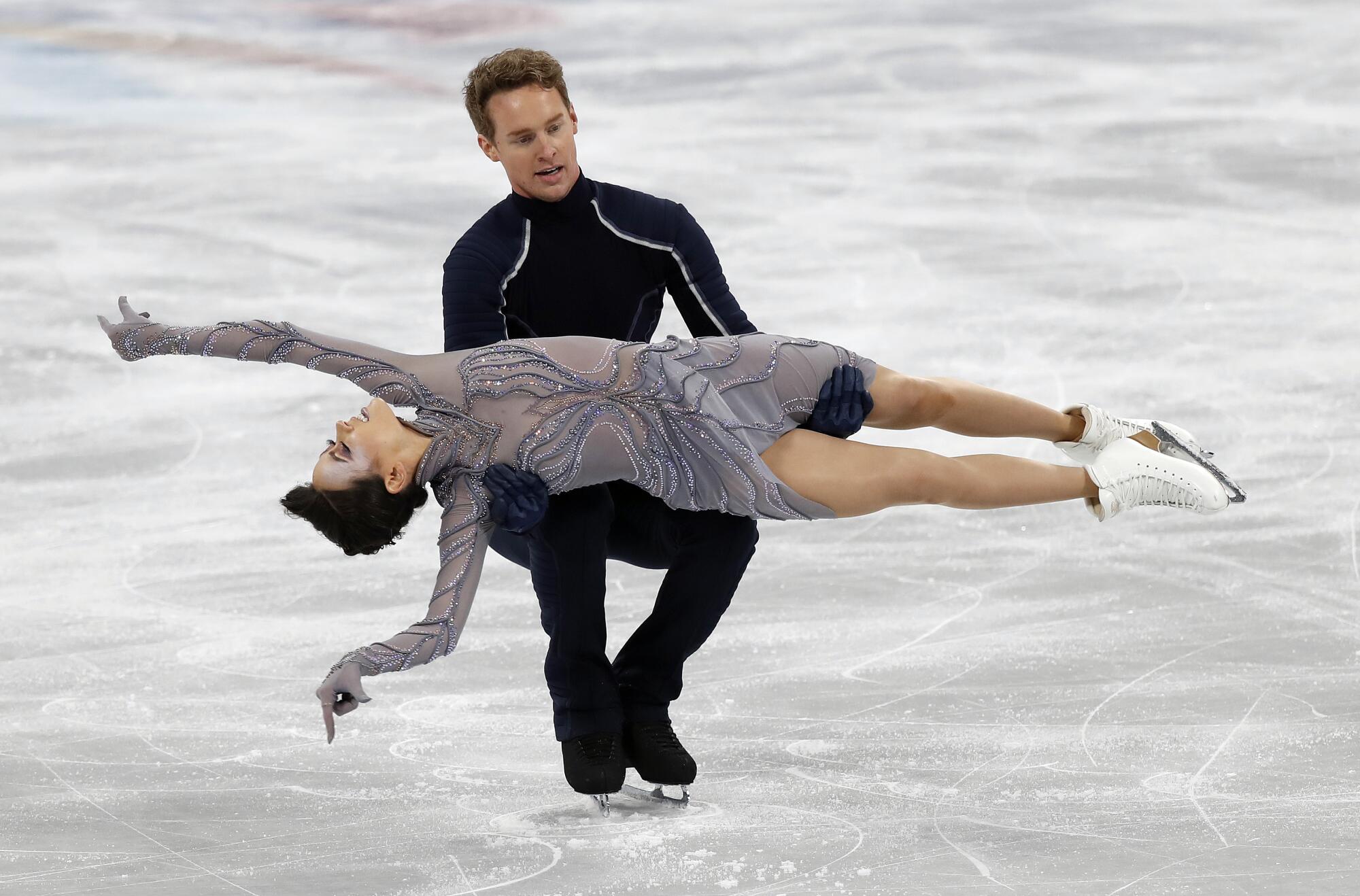
“These Olympics are so different from four years ago,” Cizeron said. “We are in a very different place. I think with all the experience we’ve gained we have become more mature. We know better what we are doing, so we are enjoying it better.
“We had a wonderful time tonight. We really skated the way that we wanted to. I think that was one of our main goals — to enjoy ourselves and enjoy the moment.”
Hubbell and Donohue, who finished fourth at Pyeongchang, have said this will be their final competitive season. If it is, they’re exiting on a high note, having contributed a season-best score to a silver-medal U.S. effort in the team competition and then topping that score Saturday.
“We made a point of not really looking at the protocol and trusting our coaching staff to guide us in the right direction over the last week to give a better performance,” Hubbell said, referring to the detailed evaluation that each skater or duo receives after each phase of a competition. “We’re very pleased and looking forward to being on Olympic ice again and finally doing our free dance.”
Sinitsina and Katsalapov wouldn’t respond during a post-performance news conference when asked about the controversy surrounding their fellow Russian, 15-year-old quadruple-jumping sensation Kamila Valieva, who tested positive for a banned substance before the Olympics and was provisionally suspended by the Russian Anti-Doping Agency for only one day.
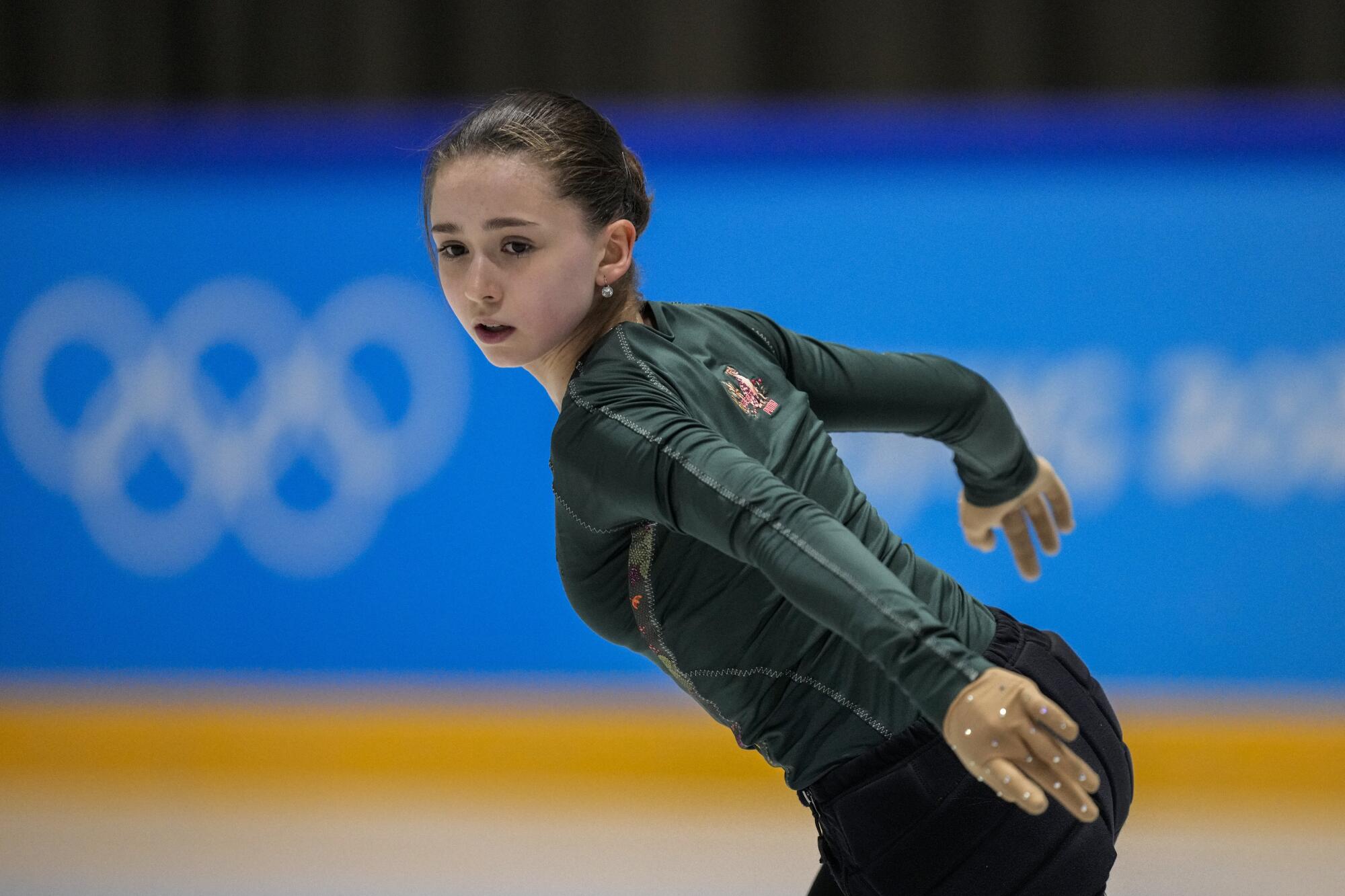
The International Skating Union, World Anti-Doping Agency and the International Olympic Committee have appealed to the Court of Arbitration for Sport to reinstate Valieva’s suspension. A hearing is scheduled for Sunday and a decision on whether Valieva can compete in the women’s singles event is expected to be announced Monday, a day before the competition will begin. Athletes from Russia are competing here as “neutrals” because Russia has been suspended from international competition as a consequence of its state-run doping program.
According to the Olympic News Service, Sinitsina spoke to Valieva briefly. “She’s a strong girl. I told her to calm down, even if it’s a hard situation right now,” Sinitsina said.
With a decision in that case looming, figure skating will grab more than its share of attention as the Beijing Games wind down. It shouldn’t be lost that Papadakis and Cizeron are advancing the sport, and that ice dancing has been better for their presence.
More to Read
Go beyond the scoreboard
Get the latest on L.A.'s teams in the daily Sports Report newsletter.
You may occasionally receive promotional content from the Los Angeles Times.

